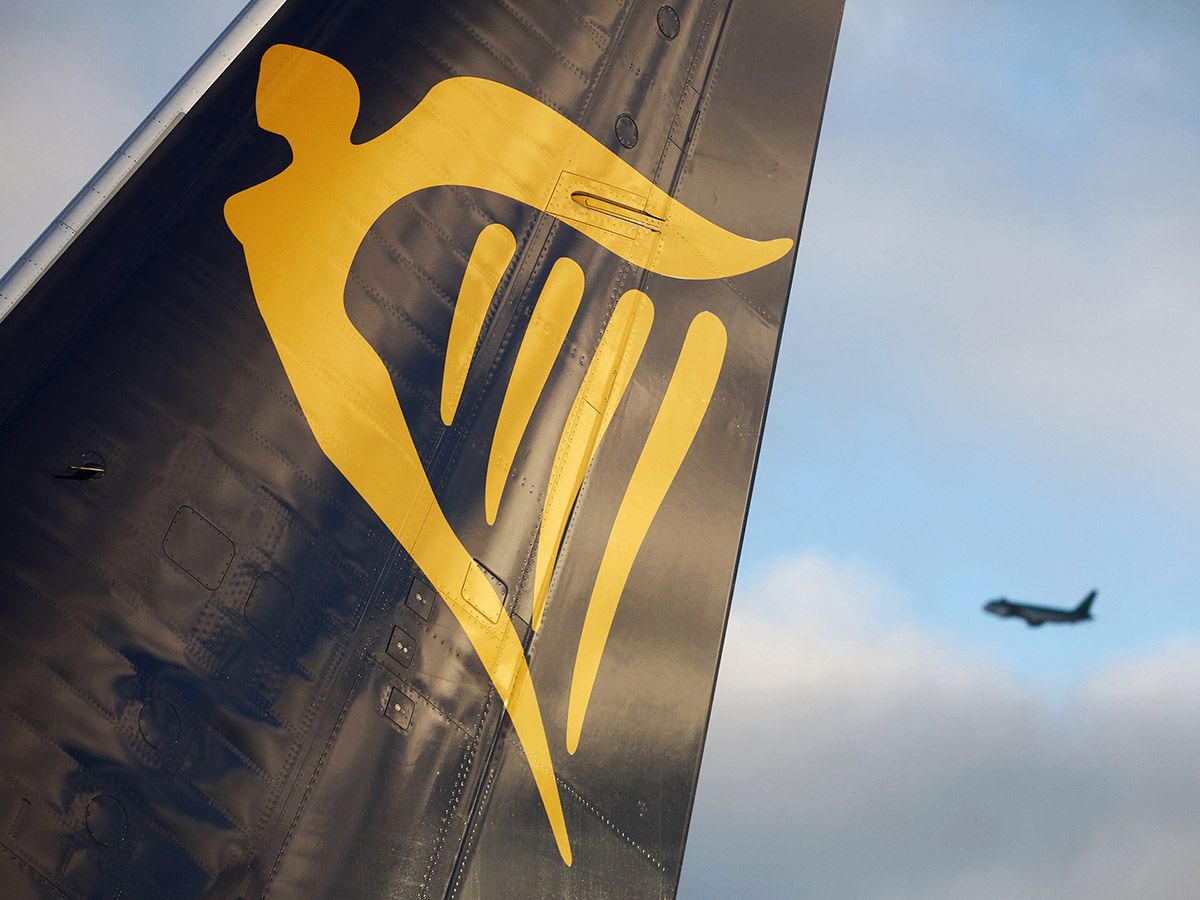Pilots based in the UK and in Ireland will go on strike from 22 to 23 August and 2 to 4 September. Since the decision was announced on 7 August, Ryanair's [RYA] share price has plummeted 8.5%.
They’re demanding discussions on several issues, including pensions, maternity benefits and salaries.
BALPA said last Friday Ryanair are seeking an injunction to stop the industrial action, defining the move as “bully boy behaviour”.
8.5%
Ryanair's share price decline since strike action announced
The news arrives one day after the airline’s chief people officer told Reuters that the company expected minimal cancellations even if the strike went ahead.
It’s not clear how many workers will stay grounded on the selected dates, although Ryanair says on its website less than 30% of its pilots are part of BALPA.
Of the BALPA members, 72% turned out for the vote to decide on the strike and 80% voted in favour.
IALPA says on its website 180 Ryanair pilots were eligible to vote in the ballot, while the ones employed by agencies were excluded.
Further strikes are planned in Portugal this week and in Spain in September.
Tough quarter results
The company is having a tough summer. It announced a 24% plunge in pre-tax profit for second quarter results, released at the end of July, surpassing Refinitiv’s forecast that predicted it would fall by 16%.
The pre-tax profit sat at €262 3m versus €345.4m recorded a year ago.
| Market cap | €9.71bn |
| PE ratio (TTM) | 12.11 |
| EPS (TTM) | 0.71 |
| Operating margin (TTM) | 15.48% |
Ryanair share price vitals, Yahoo finance, 20 August 2019
The 6% dip of average fares was offset by a 14% increase in ancillary services, such as baggage fees and on-board food.
Both total revenue and traffic went up by 11%, at €2.31bn and 42bn, respectively.
Uncertainty is likely to continue for Ryanair as Brexit weighs on consumer spending. Increased competition from Lufthansa in Germany, a key market for Ryanair, is also likely to impact the company, after its rival’s acquisition of Air Berlin.
The Boeing 737 Max crisis
Adding to Rynair’s troubles, the airline revealed in July that it is to fly 5 million fewer passengers than planned in 2020, due to a delay in the delivery of Boeing’s grounded 737 Max aircraft.
After two crashes in Ethiopia and Indonesia killed 346 people, Boeing is having a hard time passing safety tests to keep the model on the market.
Ryanair forecasts that it will host 157 million passengers in the year to March 2021, cutting the summer 2020 growth rate to 3% from 7% - meaning a cut of 30,000 flights in the total schedule.
The share price decline
The company’s share price began a fairly steady decline in the week following its quarterly results release on 28 July, dropping by 7.14% up to 5 August.
Analysts say the drop was due to a disappointing performance combined with a bleak fiscal outlook.
Fares are expected to be approximately 6% lower in the second half of the year - with fiscal 2020 air fares expected to either decline up to 2% or increase up to 1%.
Fuel costs are expected to grow by €450m while non-fuel unit costs are expected to grow by 2%.
The next challenge
The share price closed last week at €8.62, down 8.49% from August 7 when BALPA announced the strike. It was a new 52-week low for the company.
According to Refinitiv data, the stock’s forecast median target is 10.65, with a high estimate of 14.00 and a low estimate of 7.60.
10.65
Median share price target according to Refinitiv
As of last Friday, seven analysts that track the company rated it a ‘hold’ and ‘outperform’, five a ‘buy’, and two a ‘sell’.
Last October, the company recorded a 9% fall in first half-profit, to €1.32bn, after it was hurt by strike action, lower ticket pricing and higher fuel costs. This was despite the face that revenue rose 8% to €4.79bn. Ryanair are reporting H1 2020 earnings on 4 November this year.
Continue reading for FREE
- Includes free newsletter updates, unsubscribe anytime. Privacy policy





